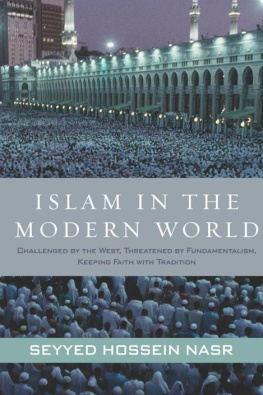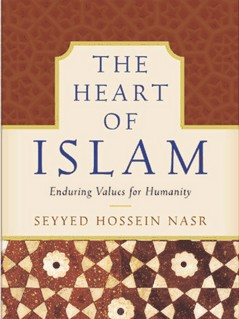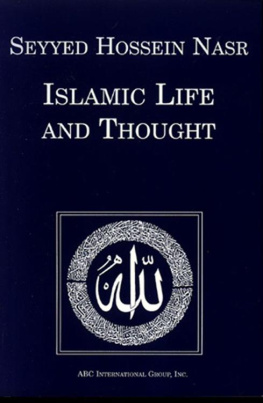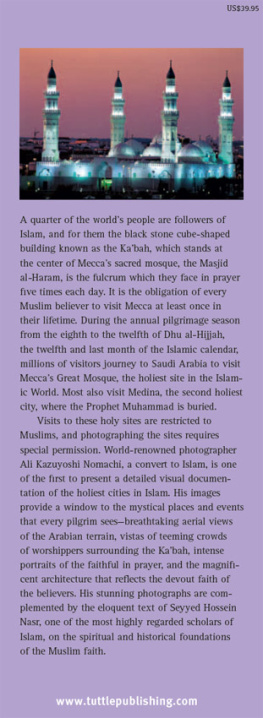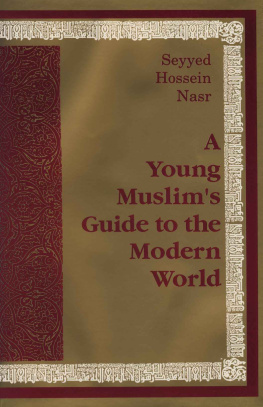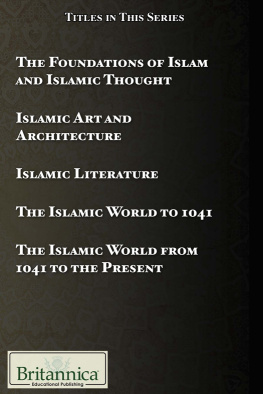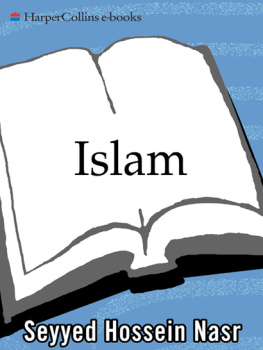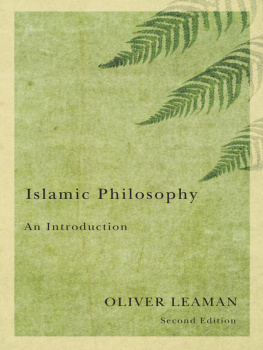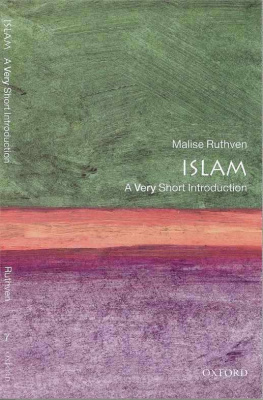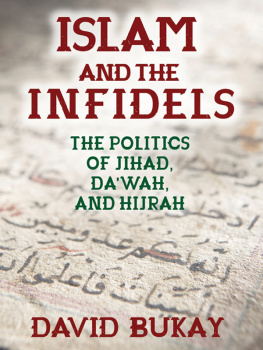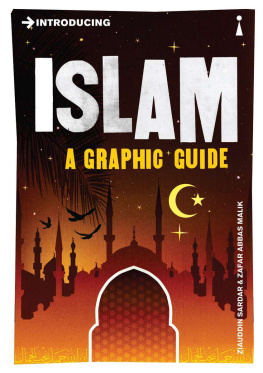ISLAM IN THE
MODERN WORLD
Challenged by the West, Threatened by
Fundamentalism, Keeping Faith with Tradition
SEYYED HOSSEIN NASR

Dedicated to the Memory of Shaykh Ab Bakr Sirj al-Dn
al-Shdhil, al-Alaw, al-Maryam, al-Sirj

In the Name of God, the Infinitely Good, the All-Merciful
Contents

Since this work was first composed over two decades ago and deals not only with the immutable principles of traditional Islam, but also its confrontation and interaction with the ever changing conditions of the modern world, the preparation of this new edition has necessitated extensive revision in both the text and the references. Where necessary, the text has been revised and augmented, and all references have been brought up to date. Moreover, several new chapters and appendices have been added to make the presentation more complete. The truths presented in the original edition have not changed, but everything has been reviewed in light of all that has occurred in recent decades in the domain of traditional Islam, which is faced with unprecedented challenges from the modern world and offers diverse responses to those challenges. The aim of the original edition was primarily intellectual and religious, not political and economic, and this aim has not been revised. The aim and general structure remain the same as in the original edition, but this revised edition, in its consideration of numerous new factors, the incorporation of more recent scholarship, and the addition of much new material, is a new book.
I wish to thank the Radius Foundation, which provided financial support for the preparation of the manuscript, and Abigail Tardiff, whose heroic efforts made possible getting this revised edition ready for publication. I also wish to express my gratitude to Eric Brandt, Suzanne Quist, and the other editors at HarperOne for all their efforts in making the printing and publication of this work possible.
Seyyed Hossein Nasr
Bethesda, Maryland
July, A.D. 2009
Rajab, A.H. 1430
The extensive interest in Islam displayed in recent years in many Western circles, far from simply helping to make the various aspects of Islam better known, has often caused confusion resulting from ignorance, misinformation, and unfortunately sometimes disinformation. Distortions of the teachings of Islam have often resulted from the negative passions that the subject arouses in certain people and from the vested interest that numerous parties have in the kind of treatment that Islam receives.
A few decades ago, Muslims could justly complain of the distortions present in studies by Western orientalists, Islamicists, and missionaries; also of the lack of interest on the part of the general Western public in matters Islamic. Today, thanks to genuine attempts by certain sections of the Islamic world to reassert their Islamic character and to seek to preserve the Islamic tradition, but even more so as a result of the unfortunate use of Islam by all kinds of political forces, some using violent means, apathy toward subjects of an Islamic nature has certainly diminished. A number of new misinterpretations have, however, arisen to supplement those of earlier orientalists and missionaries. There now exists a substantial body of journalistic treatments of Islamic subjects perpetrated in the name of scholarship (or masquerading as scholarship). Until a few years ago there was a leftist and often explicitly Marxist treatment of Islam. These days there is a new so-called resurgent or fundamentalist Islam, which currently produces a quantitatively substantial literature in European languages and plays no small role, in both words and deeds, in forming a distorted image of Islam in the West. And finally there is hate literature by both secularists and religious extremists in the West based on the open vilification of even the most sacred beliefs of Muslims.
As a result of the appearance of these and other contemporary interpretations of Islam, the task of understanding this religion as it has been lived and viewed traditionally over the centuries becomes ever more difficult for those genuinely interested in the subject. One knows who speaks for Western interpretations of Islam, who for the modernists within the Islamic world, and who for that whole spectrum of thought and action usually called fundamentalism. But, then, who speaks for traditional Islamthe Islam lived for centuries by theologians and jurists, by philosophers and scientists, by artists and poets, by Sufis and simple people of faith throughout the Islamic world during the fourteen centuries of Islamic historythe Islam that is in fact still followed by the vast majority of Muslims from the Atlantic to the Pacific?
It is as a response to the pressing need to expound the teachings of traditional Islam that this and in fact also to a large extent my other works on Islam have been written. Almost every day an issue arises in which the view of Islam is sought, and usually either some modernistic or fundamentalist response from quarters bearing Islamic credentials is providedif not simply a scholarly answer by a Western Islamicist, who may, paradoxically, occasionally provide a more balanced one, precisely because he or she is not personally entangled in the present-day intellectual tensions that beset the Islamic world. Whenever possible, I have sought to make a humble contribution to the knowledge of Islam in the West by presenting the traditional Islamic point of view precisely on such themes as are currently under debate.
In some of my earlier books, especially Islam and the Plight of Modern Man and Islamic Life and Thought , I have already provided studies of a number of traditional Islamic views that are in confrontation with the modern world. In the present volume, I continue this task by concentrating at the same time more fully upon the contrast between traditional Islam and its revivalist and fundamentalist manifestations and dealing with issues of particular significance to the Islamic world and to the Western understanding of Islam, beginning with a study of the nature of traditional Islam itself in the Prologue.
The first section then turns to some of the basic facets of the Islamic tradition that are being widely discussed and debated today, beginning with an overall study of Islam in the present-day Islamic world and then turning to the meaning of jihd , a term that has now become almost a household word in the West, but is still widely misunderstood and often maliciously misinterpreted. A study is then made of work ethics as described in traditional Islamic sources and found within Islamic society itself; a distinction is made between the two that seeks to bring out the permanent value of traditional Islamic work ethics and its continuing validity despite shortcomings in its application in many sectors of present-day Islamic society. In the next chapter, attention is turned to the critical question of the relationship between the male and the female in both its internal and external (social) aspects. Without simply surrendering to current fads, yet accepting the challenges posed for Islam concerning the role and position of women, I have sought to provide knowledge of the metaphysical and psychological foundations in Islam of the male-female relationship, upon the basis of which all the Islamic social aspects of the relationship must ultimately be founded.
Next page
